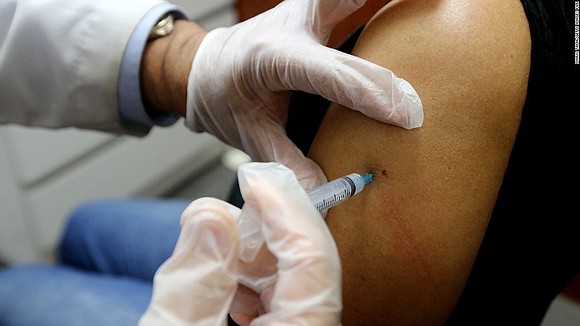Teen gets vaccinated despite parents' concerns: 'I was doing it for my safety and the safety of others'
CNN/Stylemagazine.com Newswire | 2/12/2019, 11:50 a.m.

By Jacqueline Howard, CNN
(CNN) -- Ethan Lindenberger grew up thinking that not being vaccinated was normal.
Now 18, the Ohio resident never got a flu shot or the measles, mumps and rubella vaccine as a boy. He never had the experience of going to the pediatrician, getting pricked in the arm with a needle and then receiving a lollipop or ice cream cone afterward.
"I had grown up with my mom being very staunch and open about her position against vaccines," Lindenberger told CNN's John Berman on "Anderson Cooper Full Circle" on Monday night.
"As I became a teenager and looked into it and decided that the evidence supported vaccines by and large, and that the evidence that they cause autism and brain damage and other misinformed statements weren't true," he said.
As soon as Lindenberger became a legal adult, he said, he decided to get vaccinated despite his parents' objections.
"Once I turned 18, I said, 'you know, even though we disagree, still I'm going to pursue vaccinations,' " he said.
In a popular Reddit post in November, he sought information about how to get his first vaccines.
The post begins with "my parents think vaccines are some kind of government scheme" and goes on to ask where can he go to get certain vaccinations. About a month later, the post was updated to announce that he got his vaccines.
"I grew up not knowing that you go to the health department and get a shot in your shoulder in your upper arm for a bunch of really big diseases that could have a lot of really bad side effects and a lot of bad implications. So I turned to Reddit and said, 'where do I go to get vaccinated?' ... And so through that, I got some good answers," Lindenberger said.
As a child, Lindenberger said, he had the flu but never contracted chickenpox, measles or similar diseases for which he could have been immunized.
His journey to get vaccinated, however, stemmed from him wanting to protect others against diseases as much as himself. He and his parents have agreed to disagree on the issue.
"I was doing it for my safety and the safety of others," he said. "My parents are very happy that I'm continuing to express that the importance of a vaccine is beyond just me and other people, and I'm glad to share that story."
Lindenberger has younger siblings, and he said that he hopes they get vaccinated.
"Obviously, it scares me a little bit, but I'm going to try and do my best to convince my parents that they should and hope that works," he said.
Lindenberger's decision to get vaccinated comes as the percentage of young children in the United States who have received no vaccines continues to rise.
A report published by the US Centers for Disease Control and Prevention in October showed that while coverage for a number of vaccines "remained high and stable overall," the segment of unvaccinated kids under 2 rose from 0.9% for those born in 2011 to 1.3% for those born in 2015. In 2001, only 0.3% of kids between 19 and 35 months had received no vaccine doses.
"Although the number of children who have received no vaccinations by age 24 months has been gradually increasing, most children are still routinely vaccinated," wrote the authors from the CDC's National Center for Immunization and Respiratory Diseases. "Continued evaluation of prevalence and reasons for nonvaccination is needed, as are improvements in access to and delivery of age-appropriate vaccinations to all children."
In general, each state has its own laws regarding whether a minor may consent to health care, including immunizations, Allison Winnike, president and chief executive officer of the vaccine advocacy group The Immunization Partnership, wrote in an email Tuesday.
"Across the U.S., minors generally cannot consent to their own health care; however, there are several federal and state laws that permit a minor to consent to his or her own medical treatment in specific circumstances, but it does not usually include immunizations. Generally, a minor may not consent to immunizations unless they are considered a 'mature minor,' that is, legally emancipated from their parents," Winnike wrote.
"Generally the parent is the final health care decision maker for the minor," she said.
"Vaccines save lives and are safe and effective. Vaccines are one of the top 10 public health achievements of the last century for the number of lives they've saved. In fact, vaccines are a victim of their own success; so many diseases have been eliminated or eradicated by vaccines that we no longer see the daily heartache of loved ones dying from what were common illnesses like polio, smallpox, and measles. When we don't see the devastation caused by vaccine-preventable diseases on a daily basis, some people discount the vital need to keep their families safe by vaccinating them."








